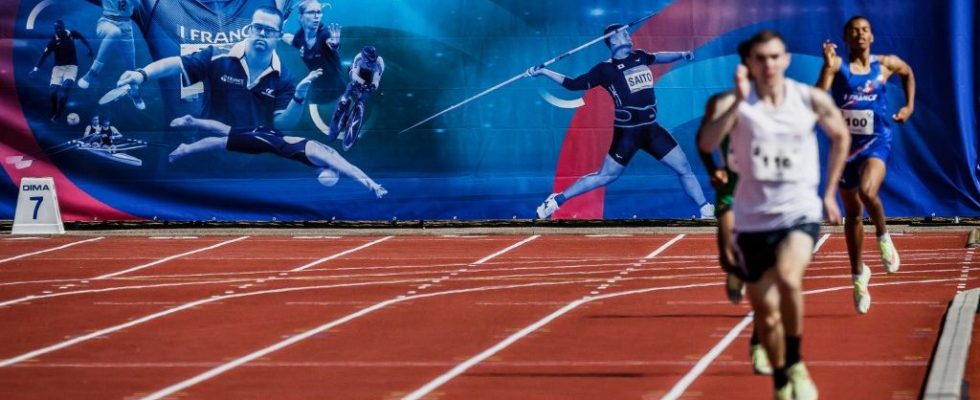188 medals including 87 gold. This is the brilliant result of France victorious in the ranking, during the 6th edition of the Virtus Global Games, in Vichy in June, the world of adapted sport, dedicated to athletes with a mental or psychic disability. However, for the Paralympic Games in Paris in 2024, which will begin in a year, there is no chance that athletes with intellectual disabilities will hold the French team at arm’s length: of the 300 or so athletes who should be selected, only 7 or 8 will come from adapted sport. It must be said that the events are very limited: athletics, swimming and table tennis are the only sports open for a total of ten events. That’s barely 2% of all 549 events. “It’s really very little when you know that it is the most present handicap in the world”, breathes Marc Truffaut, president of the French Federation of adapted sport (FFSA). But a disability that is also regularly invisible and therefore more difficult to detect.
Why then does adapted sport have so little place in the Paralympic family? What is the origin of these few crumbs left to athletes who train every day and are registered on the federal lists of high-level athletes? We have to rewind to the Sydney Games in 2000, the 2nd edition when adapted sport entered the Paralympic program after Atlanta in 1996 and Nagano in 1998, and tell a story that deeply tainted history and threw the stigma over several generations of mentally handicapped athletes. “Yes, the Spanish basketball players cheated. But it’s as if a cyclist was doping and in reaction, we said: we stop cycling, ”summarizes Marc Truffaut.
The cheating of Spanish basketball players and its consequences
In Sydney, basketball for the mentally challenged is a Paralympic event, and in 2000, it was the Spanish team that won the title on October 24 against Russia. But as Fabrice Drouelle tells it, in an episode ofSensitive matter on France Inter, ten of the twelve Spanish basketball players were not disabled. And the Spanish federation was aware. When the deception is discovered, the entire team must return their gold medal, including Ramon Torres and Juan Antonio Pareja, the team’s only two truly mentally retarded basketball players.
But the scandal splashes further than the only adapted basketball court. In the wake of the Sydney Games, the International Paralympic Committee (IPC) decided to simply ban all mentally handicapped athletes from the next Olympics. Thus, due to too much difficulty in determining the level of disability of athletes with intellectual disabilities, they are simply not included for the 2004 Games in Athens.
Reintegration into the London Games
For nearly ten years, these athletes were therefore persona non grata in the great family of world Olympism and Paralympism. “It was at this time that the Virtus Global Games were created, specifies Marc Truffaut, to remedy the absence of major international competition for adapted sport”. The first edition took place, in fact, in Sweden, in 2004.
Then, in 2009, the IPC, meeting in general assembly, decided to reintegrate the intellectually disabled into the Paralympic Games. They therefore return for the London edition in 2012, in three disciplines: athletics, swimming and table tennis. This is little. “The reason is simple: disabled sport has taken up vacant places in the absence of Paralympic adapted sport,” explains Marc Truffaut. There is no controversy, it is in the logic of things. Why not create more?
A very restrictive numerus clausus
In fact, the number of athletes participating in the Games is very standardized, and set by the IOC. “For the able-bodied, we are at just over 10,000. For the paras, we were at 4,200 and we will go to 4,400 in Paris, recalls the president of the FFSA. As it cannot increase exponentially, for economic and logistical reasons in particular, if we add adapted sport events, another category must be removed. At the risk of ending up with events with only three to four competitors.
Not to mention the only class for mental disabilities unlike the Virtus Global Games where there are three: intellectually disabled, intellectually disabled with additional disabilities, which allows people with Down syndrome mainly to have a global competition, and autistic . In athletics at the Paralympics, for athletes with a visual impairment, there are three categories, 11, 12 and 13 which range from visually impaired to completely blind. “It’s one of our fights today, to open a second class for the mental handicap because at the moment, a Down’s syndrome today has no chance of participating in the Paralympic Games”, specifies Marc Truffaut.
Still taboos around this disability
Without speaking about taboo, the president of the FFSA recognizes that the road is long and that there remains a certain stigmatization towards these sportsmen. “For the Winter Games, it’s not a problem of places, not all the quotas are filled, but a political will. The International Ski Federation (FIS) opposes the reintegration of adapted sport and has reaffirmed it again recently”. However, if he admits that the Sydney Games scandal also brought to light problems in the classification system and the tests, “today everything is ready and reliable to participate in the 2026 Games in Cortina”.
As a reminder, athletes with intellectual disabilities are subject to two stages to verify their level of disability. The first is the detection of an IQ below 75, detected before the age of 22, accompanied by tests showing support and adaptation needs in everyday life. Then, to qualify, they must undergo classification, which must demonstrate that the intellectual disability does indeed have an impact on sports practice. “The tests are done several times, they are very standardized. Cheating is a thing of the past,” insists Marc Truffaut. Like in cycling?

